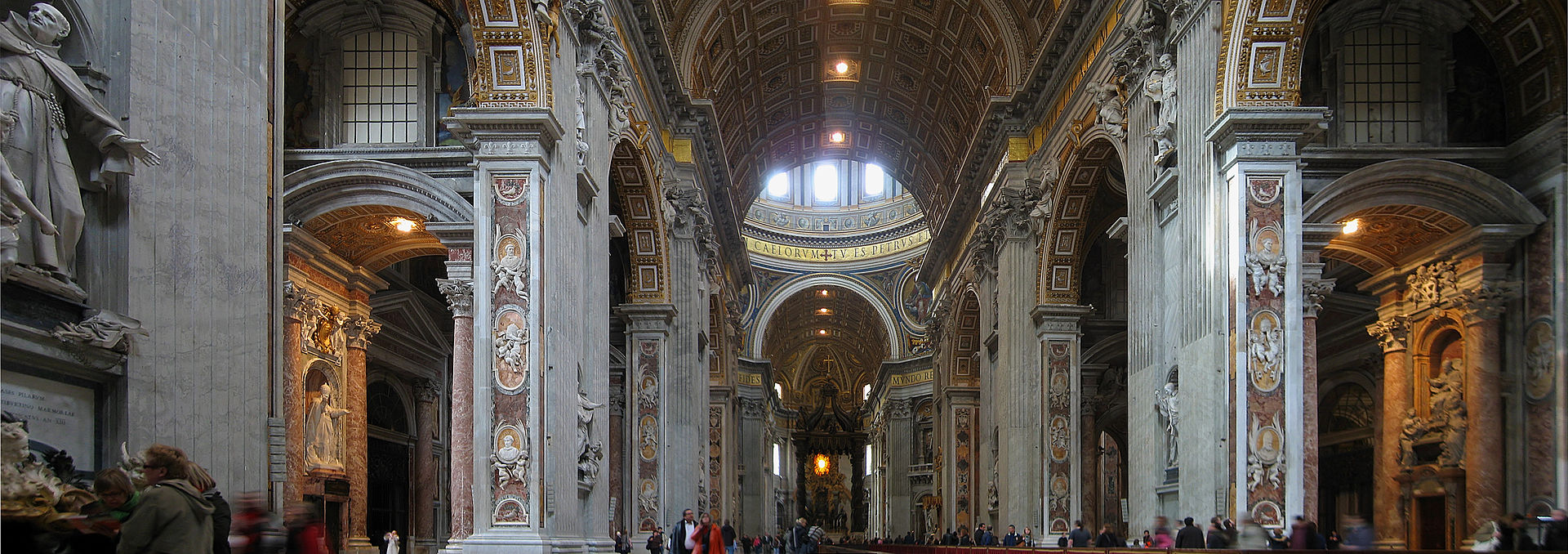Let’s imagine the best Catholic hospital–the best possible Catholic hospital, the Platonic ideal of the Catholic hospital.
The first thing to be said about this hospital is that it would not be like other hospitals, even other hospitals of comparable size, standing, geography, etc. It would be different, and not just because it would have a name like “Sacred Heart” or “Our Lady of Something”. And it would be orthodox, not in the sense that everyone checks the right doctrinal boxes, but in the sense of any organization that has a mission and where everyone is on board with that mission and sees themselves as serving that mission.
The second, and most important, thing to be said about this hospital is that it would view itself as being primarily in the business of being in the care of souls. Everyone working at the hospital, from the CEO down to the janitor, and with everybody in-between, would view themselves as in the business not of providing medical care, but of providing care for souls. It wouldn’t just be that no patient in the hospital would be just a number–although that alone would be exceptional for a hospital. It would be that every doctor, every nurse, would have a holistic view of every patient, and think first of caring for people’s souls, then caring for their minds, then caring for their bodies.
As an aside, my wife and I chose the private clinic where our daughter was born because it was the only one we found where they offered a spiritual preparation to birth course, not just physical/psychological. We only later found out that it was widely ranked as one of the very best maternity clinics in the country. Sainte Fé is run by nuns (of course) who were all ridiculously adorable–and competent. Some of the nuns were nurses, some were ob-gyns, some were administrators. Our daughter was born a few days before Christmas. On Christmas Eve, the nuns went around every (non-IC I guess) room in the clinic playing guitar and singing Christmas songs and handing gifts they hand-made for the babies and parents. The first time my daughter left the medical environment was in my arms to go to Midnight Mass in the clinic’s chapel, which I’m sure you can imagine was a moving moment for her parents (she slept through the whole thing, of course).
Thinking of a hospital as being in the business of caring for souls sounds nice but not really difference-making if you’re thinking about someone who broke their arm, but in those medical procedures surrounding the beginning and the end of life we can see how important care of souls is. Often it can make all the difference.
Now, once this is said, here’s the point I am getting to. Remember, we are imagining the best Catholic hospital possible. All of what I have just said is of utmost importance. But if we think of the best possible Catholic hospital, we have to think that it would also be a really good hospital.
By which I mean the best Catholic hospital would have some of the most skilled and talented medical personnel in the world, and it would be at the cutting edge of technology. Doctors in the best Catholic hospitals would think of themselves as caring for souls first, absolutely, but they would also be excellent at medicine. Administrators in the best Catholic hospitals would be evaluated first, absolutely, on their faith and charity, but then, and equally rigorously, on their skill as administrators. If we are thinking about the best Catholic hospital, we are necessarily thinking about one of the, if not the best hospital in the world for medical outcomes and so on. It would be one of the world’s most outstanding research institutions. We are thinking about a hospital which would be on the cover of magazines like the MIT Technology Review and Harvard Business Review and the McKinsey Quarterly for its relentless innovation. We are thinking of a place where cutting-edge new medical procedures and new organizational templates would be tried out all the time. What’s more, we are thinking of a place where, if you were to suggest a medical innovation and someone replied “We’re here to take care of souls first, not medicine”, everyone else in the room would look at them as if they sprouted a second head, because everyone would understand instinctually that to take care of souls necessarily entails being extremely competent at medicine, if only because our options regarding caring for someone’s soul narrow down considerably once their body’s dead.
Where am I going with this? As I’m sure you figured out, I am, after Pope Francis, using the metaphor of the Church as hospital.
And the metaphor I’ve outlined I think helps make two interrelated points that I don’t see made enough:
Competence matters. A priest who was like a spiritual father to me and who ran a relatively large ecclesial movement was in the habit of saying “Finding eager and dedicated volunteers is easy. Finding competent volunteers–that’s hard.” The Church is “in the business” of doing many many many things. Running hospitals. Running schools. Feeding the poor. Sheltering the homeless. Providing psychological guidance. Continuing faith education. Catechesis. Saying the liturgy. Doing public advocacy. The list is endless, and it is a true blessing that it is endless. It is easy enough to see that to be a truly Catholic hospital, a Catholic hospital has to be many things other hospitals don’t, but it first has to be a good hospital. Well, this is true about most everything else. We Catholics spend a lot of time (myself very much included) on abstract discussion about how we should do this or that or the other thing, and comparatively little on just doing it very well. The liturgy is a great example. The problem of the liturgy in the daily life of the Church is not the topics we endlessly obsess about–vernacular vs. Latin, ad orientem vs. versus populum, organ vs. guitar…–the main problem of the liturgy in the Church is mediocrity. The problem is not guitar music, it’s bad guitar music. Now, I realize that competence is not wished out of a hat. I realize that the Church is always strapped for resources, and it doesn’t exactly recruit out of Harvard Business School (insert your own joke here). As my mentor pointed out, this is really hard. But it seems to me that actually talking about it, actually being aware that this is Step #1, is something we don’t do enough. It won’t fix anything by itself, but I do think it’s a place to start.
Empiricism matters. The Catholic Church is heir to the most stupendously rich intellectual patrimony in the history of humanity. The reason why I like the metaphor of the hospital is because a good hospital is at the cutting edge of science. Do we think the Church should be at the cutting edge of science? By which I don’t mean that Catholic institutions should be the world’s premier research centers for, say, physics, although they should (and maybe are). By which I mean that one exceedingly Catholic idea is that one of the reasons God gave us senses and a rational mind is that through rational inquiry applied to the world we can discern His will. Let me be more concrete: if you were to draw up a list of the world’s 100 most innovative global development charities, how many Catholic ones would be on the list? How many among the Top 20? I am sure there would be some in here that I don’t know about, but I do think we’re not doing as well as we can. The two most innovative Christian development charities that I know of are Evangelical: World Vision and the International Justice Mission. Which organizations are renowned as leaders in the microfinance movement? Off the top of my head, I can cite the Grameen Bank and SKS Microfinance and PlaNet Finance, none of which are Catholic. And speaking of actual hospitals, what about the Mayo Clinic (founded with the help of nuns!) or Narayana Health? And, forgive me for getting on my hobbyhorse, but what about education? KIPP, Teach for America, OLPC, Harlem Children’s Zone, Khan Academy, AltSchool–those aren’t Catholic organizations. Again, I am sure plenty of Catholics are working on amazing stuff in the shadows, and these organizations don’t have all the virtues, but do you see the point I am making? In higher ed, where’s the Catholic Udacity or Minerva Project? Speaking of education, of course, I would be remiss not to note that the greatest education scientist of the 20th century, Maria Montessori, was a devout Catholic, and that her findings, enormously in accord with both science and Catholic theological anthropology, have been utterly ignored by the Church which continues to mostly establish schools which are merely carbon copies of secular schools. The Gates Foundation wants to eliminate malaria and deploy every means to do so–where is this kind of vision for the Church? (And yes, it is about vision, not money–God provides.) Meanwhile, we have the Pope telling us the reason people go hungry is because we first-worlders throw away food. One of the most exciting current trends in development science is the use of randomized field trials, which are the golden standard of evidence in social science, to determine the effectiveness of poverty interventions. Given her scale, her presence everywhere in the globe, her myriad social services agencies and bodies and her higher ed and research institutions, the Catholic Church is uniquely placed to take the lead in this movement and in the process not only advance science, but immeasurably improve millions upon millions of lives for the very great glory of God. I could go on and on and on. But the point should be clear: if you want to be the best Catholic hospital, it is self-evident that in order to do so you need not only the right theology and holiness, you need to be at the cutting edge of science and innovation. This doesn’t seem to me to be in the picture in the Church at all. In using empiricism to be better at being “the Church” we have another great ally, which is Catholic theology. When it comes to human beings, “science” is much less conclusive than when it comes to particles and lumps of matter, because the causal density is so deep. Empirical investigation, as extremely important as it is, can only give us leads and insights and suggestions. Everyone can do that. But thankfully, we have the other piece of the puzzle, which is Catholic anthropology. In designing some social program, we the Church should be able to design the best social program because we would have both the best scientific work and also the best theology to answer the questions that the empirical work can’t answer. But I don’t see us being conscious of the opportunity.
The Nave of St Peter’s Basilica by Manfred Heyde – Own work. Licensed under CC BY-SA 3.0 via Wikimedia Commons.

















